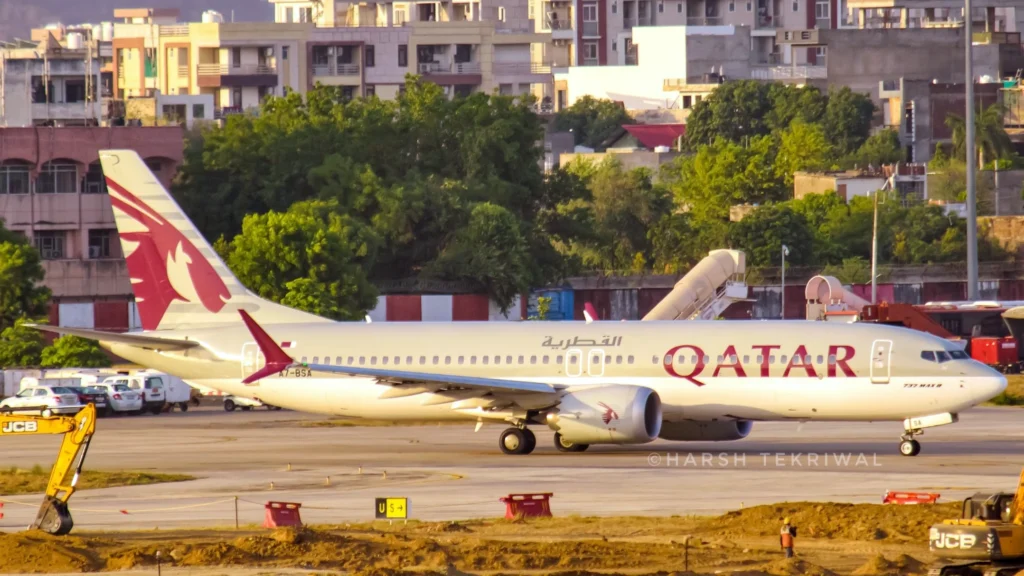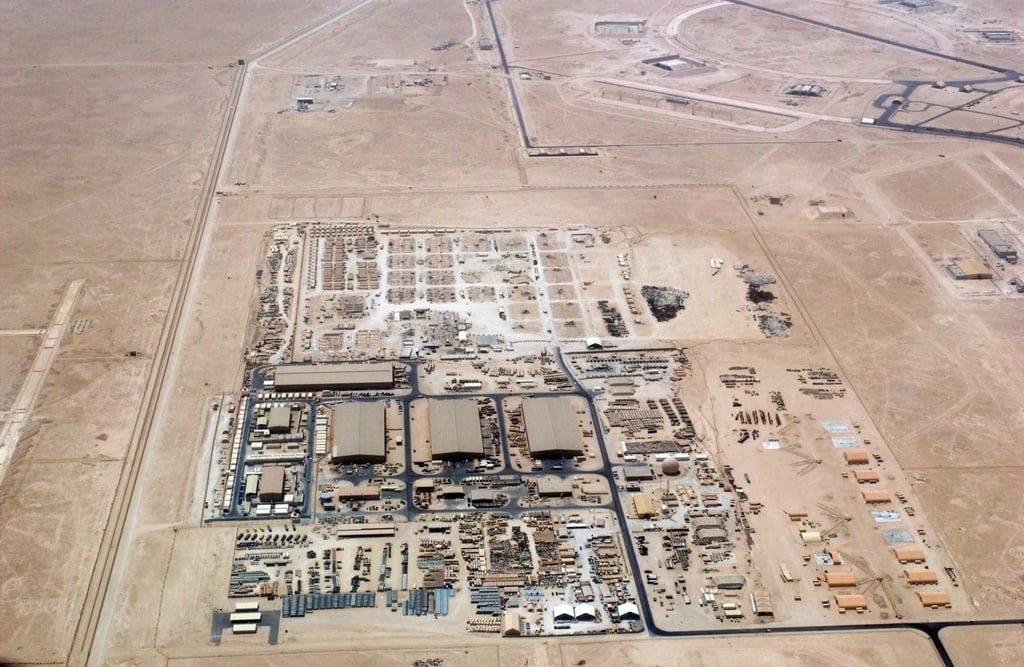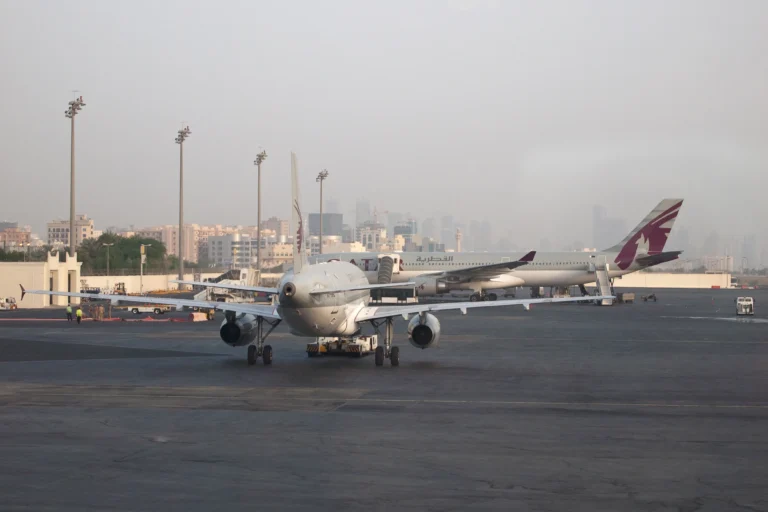DOHA- Qatar has temporarily closed its airspace following a security advisory issued by the United States Embassy, urging American citizens to shelter in place.
The decision, affecting flights bound for Hamad International Airport (DOH), was made as a precaution amid escalating regional tensions, impacting major carriers such as Qatar Airways (QR).

Qatar Closes Airspace
Qatar’s Ministry of Foreign Affairs confirmed that the airspace closure was a proactive measure to ensure the safety of residents, visitors, and international travelers.
The move came after the US Embassy in Doha advised American citizens via email to remain indoors “until further notice,” citing an unspecified threat.
The directive triggered precautionary responses across institutions in Doha, including universities and schools. British authorities soon echoed the guidance with a similar advisory for UK nationals in the country.
The alerts followed heightened concerns over potential retaliation from Iran. Two US officials told Reuters that Iran may target American military forces in the Middle East in response to recent US airstrikes on Iranian nuclear facilities.
These developments came just days after the US bombed three such sites on Saturday, prompting the State Department to urge Americans globally to “exercise increased caution.”
Despite the advisory, Qatari officials stressed there was no imminent danger within the country. “The security situation in the country remains stable,” said Majed Al Ansari, spokesperson for Qatar’s Foreign Ministry.
He emphasized that the US embassy’s message was not linked to a specific threat and reassured the public of Qatar’s readiness to act in the interest of public safety.

Operational Impact on Flights and Institutions
Hamad International Airport (DOH), a major Middle Eastern transit hub, saw widespread disruption as over 100 inbound flights were diverted, according to Flightradar24. Aircraft were rerouted to nearby countries, including the UAE and Oman, following the sudden airspace closure.
Confusion ensued across American institutions in Doha’s Education City. Texas A&M University ordered an immediate evacuation, while Northwestern University advised staff and students to return home.
Georgetown University left the decision to individuals, allowing them to leave if they felt it necessary. This lack of uniformity further unsettled residents, who were seeking clarity amid the evolving situation.
Strategic Importance of Qatar’s Military Role
Qatar hosts the Al Udeid Air Base, the largest US military installation in the Middle East, with approximately 10,000 American troops stationed there.
The base also serves as the forward headquarters for US Central Command (CENTCOM), underscoring the country’s strategic military significance in the region.
The ongoing airspace closure and diplomatic caution reflect the delicate balance Qatar must maintain amid its alliances and geographical position in a volatile region.

Iran Attacks Qatar
Iran launched multiple ballistic missiles toward Al Udeid Air Base (IATA: XJD) in Qatar on Monday, targeting the largest U.S. military installation in the Gulf in retaliation for a recent American strike on Iranian nuclear facilities.
The assault came with a warning. According to U.S. defense sources, the U.S. Air Force (IATA: UA) had prior intelligence about the Iranian attack and reported no American casualties following the missile barrage.
Iran’s Islamic Revolutionary Guard Corps (IRGC) confirmed it fired a mix of short- and medium-range ballistic missiles directly at Al Udeid Air Base, which houses thousands of U.S. military personnel and is a strategic asset in the Middle East.
The IRGC described the strike as “devastating and powerful,” labeling the base as the “largest strategic asset of the U.S. terrorist army in West Asia.”
The attack was timed as a direct response to a U.S. military operation conducted days earlier, which struck three Iranian nuclear sites. Iran’s Supreme National Security Council later released a statement claiming the number of missiles launched matched the number of bombs used by the U.S. in that operation, signaling a deliberate tit-for-tat response rather than an escalation.
Qatar Responds Swiftly, Intercepts Incoming Missiles
The Qatar Ministry of Foreign Affairs swiftly condemned the missile attack and emphasized that its air defense systems had intercepted the missiles, with no injuries or fatalities reported. The ministry reiterated that the strike targeted an isolated military installation far from residential zones, minimizing risk to civilians.
Despite cooperating militarily with the U.S., Qatar reaffirmed its role as a neutral diplomatic actor in the Gulf. It urged all parties to return to dialogue to avoid further instability.
Notably, the Qatari government issued its statement within minutes of the strike, indicating foreknowledge of the event, likely shared through U.S.-Qatari security coordination.
U.S. Monitored Strike in Real Time; No Immediate Retaliation
A U.S. defense official told Axios that “Al Udeid Air Base was attacked by ballistic missiles originating from Iran,” adding that American forces remain on high alert. President Trump was briefed in real-time during the attack at the White House, joined by Defense Secretary Pete Hegseth and Joint Chiefs Chairman Gen. Dan Caine.
While the U.S. did not respond immediately, Trump had previously warned that any retaliation against American forces would provoke a significantly stronger counter-response. The president’s next steps are expected to hinge on the perceived scale of the attack and the absence of American casualties.
Stay tuned with us. Further, follow us on social media for the latest updates.
Join us on Telegram Group for the Latest Aviation Updates. Subsequently, follow us on Google News

